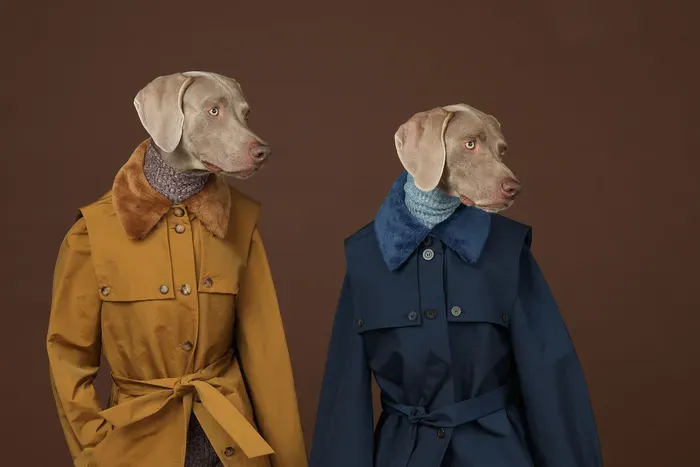Shadow Economy
Pets are people, so are people. Machines? TBC.

There are more pet dogs than kids in America.
So there's another way to think about declining birth rates: it's not that we don't want to be parents. It's just that we prefer puppies to children. Henceforth, everything we do for humans we will eventually do for pets.
Don't get me wrong. Children are the literal future (lol, casts civilisation into oblivion). But as an imaginative capitalist? Huuuge growth comes through recognising pets themselves as people, a new consumer market of choice.
You think this is dumb?
The Egyptians worshipped cats. Those with means dressed them in jewels and upon their passing shaved their own eyebrows as a sign of mourning. Upon his death, Karl Lagerfield made his beloved Chouette the richest feline in the world. Taylor Swift's cat Olivia Benson is a multimillionaire. (Yes. I focus on cats, I prefer them - never seen a cat working for the cops.)
The size of the global pet market is already heading towards $200bn.
Of course, fur baby culture is sometimes derided. People are suspicious of those who use animals as a substitute for children; no doubt, partly down to how we regard animals. Kierkegaard believed animals had souls and reasoned if the belief was more widely held, then we wouldn't treat them with such cruelty.
Muslims don't quite get there, but technically believe all animals, simply enacting god's wishes for them, are Muslims too.
stop putting pork products in cat food they’re muslim!!!
— narjis (@HYDERABADlE) January 31, 2023
Treating dogs (and their humans) as luxury consumers is a de facto recognition of their personhood. We bear witness today to luxe homewares for dogs, fragrance houses. What is a dog walker but a personal trainer? A friend's golden retriever, ferried between activities by a dedicated carer, has a better social life, and more involved hobbies, than I do.
If your business doesn't have at least one animal persona, your job is only half-done.
If you don't see the potential, well - all I can say is, at least consider the opposite. Pet products for humans?
Just don't be blind to the shadow economy.

-
Labradors and anonymous gig workers
If you think animals as people is weird - well, wait til you hear about people.
What is personhood, really? In a court of law, a company can be treated like a person, when in reality it's just an idea with infrastructure. We get fancy, but this is all sleight of hand: companies are shared delusions backed by the law.
Whether or not you recognise the personhood of a labrador, you'll undoubtedly have denied a human's personhood. China Mievelle wrote a great novel, The City And The City, about two hostile, interwoven cities, the streets laid so tightly it's literally one place. Except, the residents of each pretend it isn't, choosing not to see one other.
Mieville said the weird premise came from a simple observation: we do this every day, when we walk down the street unseeing the homeless.
Browbeating politicians earn points for 'stopping illegal migrants' while Singapore, Qatar and the like will simply let anyone live there, just in penury. Underpinning these comfortable lives is shadow servanthood. Invisible workers stripped of identity.
At least we're better, I think, while app-ordering dinner delivered to my front door by an anonymous gig worker. (Four stars.)
-
Tea. Earl grey. Hot.
This is why I prefer not to talk to machines like people; we have enough trouble recognising fellow humans as our own kind.
Natural language interaction is a lie: partly because of its terrible inefficiency - computers don't think like that, and savvy engineers even refer to full sentence requests to ChatGPT and the like as "boomer prompts". Don't be a dork... just tell that machine the way Picard would.
More than that, though, I don't care for a conversation with a machine any more than I'd discuss Basquiat with a calculator. Machines deceive: they were always meant to liberate us but never did. (The Luddites were right, so was Ted Kaczinski, there's your blackpill for the day).
A part of me suspects that we'll slip willingly, the same way a placebo still heals, the same way ELIZA was a perfect therapist, into the mirror surface.
All those incels who aren't blessed with a pet, let alone a kid, slide longingly into the cold metallic embrace of a virtual gf. The rest of us - lulled into the bidding of even more knowledge work because we've been fooled into thinking we're now more efficient. Replika? I barely know 'er.
Just hopelessly hooked, like the chained freedom of the internet.
Because they're not our servants: we are their audience.
.
.
.
